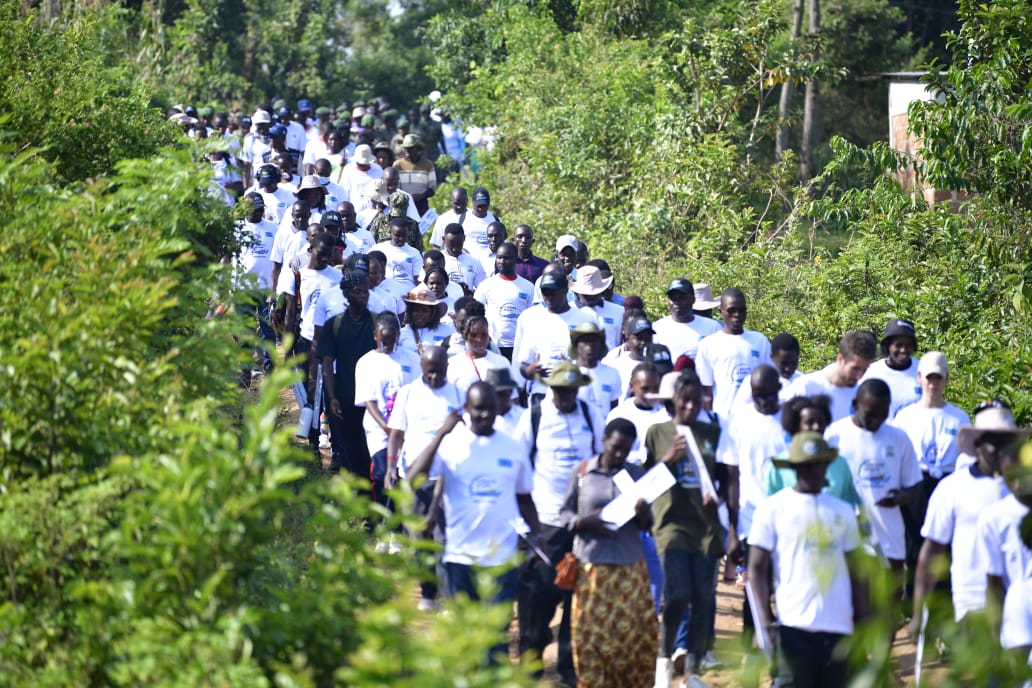
Kisumu, Nandi, Vihiga Counties unite for water conservation on River Kibos

The Counties of Nandi, Vihiga, and Kisumu have made significant strides in water conservation by participating in the Journey of Water (JoW) Campaign for River Kibos, which took place from June 19th to 21st, 2024.
This collaborative effort culminated in a pivotal town hall conference at Sarova Imperial Hotel in Kisumu City, Kenya.
During the conference, the counties outlined several key commitments aimed at enhancing sustainable water catchment management within their respective jurisdictions.
They emphasized their commitment to restoring River Kibos, along with its tributaries and other rivers across their counties, in alignment with Kenya’s goals under the Global Freshwater Challenge.
Additionally, they pledged to utilize science, technology, and innovation to effectively manage their shared water resources.
Moreover, plans were set in motion to establish a joint water resource facility that will consolidate resources from the counties and development partners, to increase the allocation for water resources management by at least 2.5 per cent of their line department budgets.
Judith Oluoch, CEC Member for the Department of Water, Environment, Natural Resources, and Climate Change in Kisumu County, stressed the importance of intercounty collaboration.
She emphasized the need for creating water resource committees to bring together key stakeholders to address mutual water management challenges.
Oluoch highlighted Kisumu County’s steadfast commitment to ensuring access to safe and affordable water for all residents.

Dr Joash Oruda, Water Resource Authority Regional Coordinator for Lake Victoria Basin, pinpointed sand harvesting as a major cause of water pollution along River Kibos.
He urged stakeholders to unite as investors to explore sustainable solutions.
“We need to create washing basins where residents can clean sand without polluting rivers. Dirty water can then be passed through wetlands, which will clean it before returning it to rivers,” Dr. Oruda proposed.
He also underscored the urgent need for county governments to expand sewage systems in unplanned settlements to prevent raw sewage from contaminating water sources.
On his part, James Odero, Director for Water and Sanitation in Vihiga County, emphasized the necessity for institutional synergy among the three counties.
He advocated for the establishment of a shared information resource management system to ensure cohesive data and research for responsible water resource management.
The commitment to support water utilities in investing in catchment restoration to improve water yield and quality was also highlighted in the resolutions, alongside the development of a joint catchment management plan to facilitate integrated management approaches.
Together with various stakeholders, the counties noted that they are working towards the establishment of Basin Water Resource Committees in the Lake Region to enable effective policy formulation and collective action.
They also noted that are dedicated to creating enabling policies and institutional frameworks within the Lake Region Economic Bloc (LREB) to enhance stakeholder participation and protect water sources from adverse effects such as fluctuating water levels, water quality degradation, and encroachment on riparian areas and wetlands.

During the conference, it was also highlighted that plans are underway to develop comprehensive frameworks for managing water-related risks and disasters, including early warning systems to mitigate the impacts of floods and droughts, as well as strategies to address transboundary hydro-politics and water conflicts at local, county, and regional levels.
In conclusion, Dr. William Ojwang, Freshwater Lead at WWF-Kenya, issued a stark warning about the impending water crisis.
“Soon, everyone will be fighting for water,” he cautioned, emphasizing that proactive awareness and conservation efforts are essential to mitigate this looming challenge.
Dr. Ojwang highlighted WWF Kenya’s support for water catchment protection and restoration efforts by donating Ksh 10 million to Kisumu Water and Sanitation Company Limited (KIWASCO).
“Let us change our attitude towards water and combat water blindness in our country,” he urged.
These concerted efforts underscore the joint commitment of Nandi, Vihiga, and Kisumu counties to restore and sustainably manage water catchment areas within the Lake Region, paving the way for long-term water conservation and environmental sustainability.
